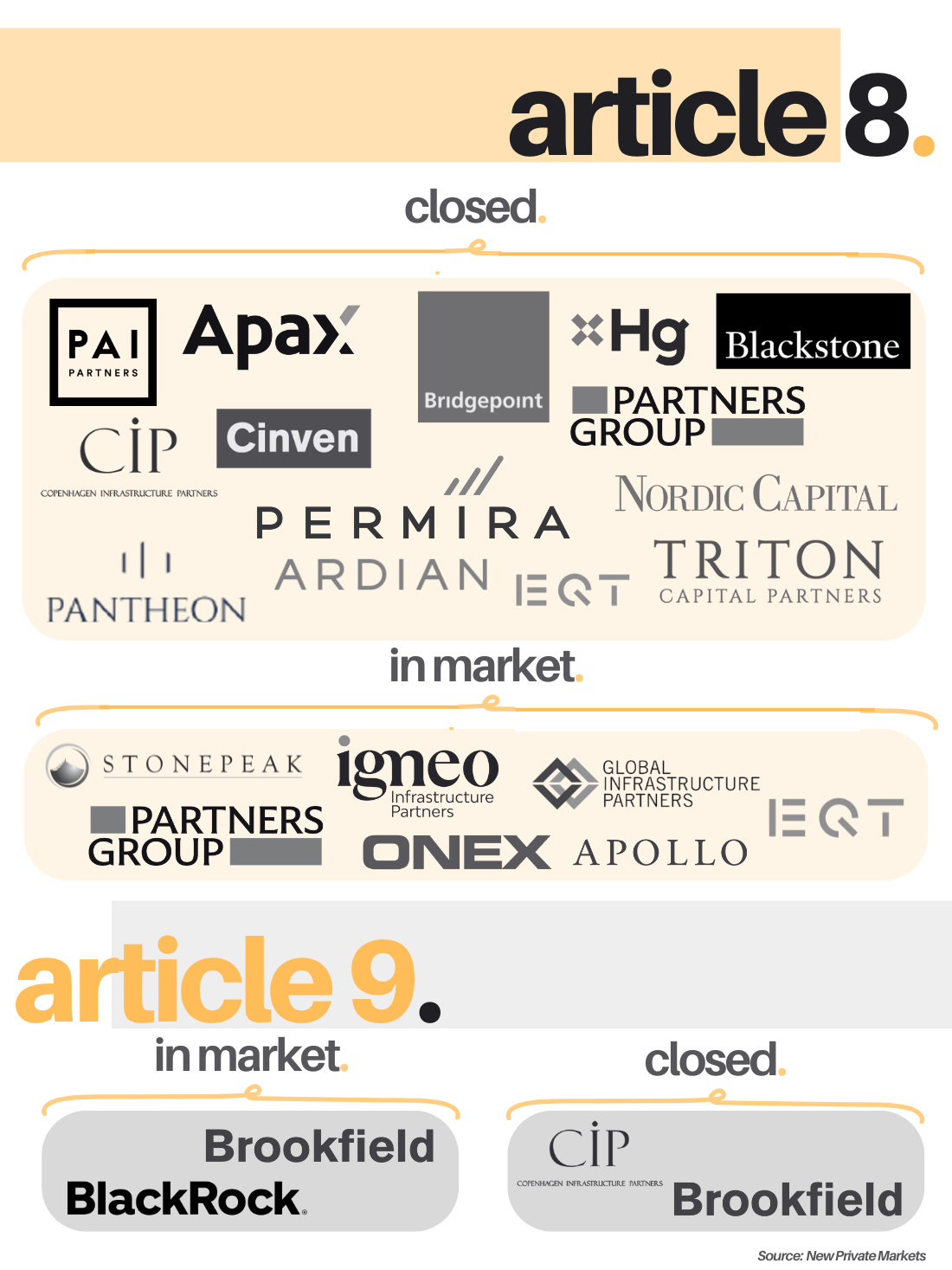Higher US Employment Litigation Risk for Article 8 and 9 SFDR Fund Portcos
The EU law’s operational stipulations for sponsors could prove to be a double-edged sword at the portfolio company level — especially during Trump 2.0.
Managers of Article 8 and 9 funds under the European Union’s Sustainable Finance Disclosures Regulation by law have to be embedded in the operational day-to-day of their portfolio companies in order to assure compliance with ESG goals.
Thus far, this has mainly been a net positive for activists hoping to strengthen good governance and mitigate adverse impacts at the portfolio company level, especially when it comes to diversity and equal opportunity employment law.
Historically, Equal Employment Opportunity Commissions at the state and federal levels have utilized the operational link established between sponsors and portcos of Article 8 and 9 funds to protect women and minorities at said portcos.
“Having an article 8- or 9-motivated operational interaction [with a portco] focused on diversity runs the risk of creating evidence that could be used by a state-level EEOC of potential noncompliance,” explained Robert Skinner, a partner in Ropes & Gray's securities litigation group.
This risk, coupled with the potential joint liability of sponsors and portcos for EEOC violations at the portco level, means that Article 8 and 9 funds have a vested interest in making sure that the day-to-day operations of its portfolio companies (and indeed, the managers in charge of those operations) are protective of minorities and women.
With the dawn of the second Trump administration, though, the interests of the sponsors in this arena are much less straightforward.
The culture war comes for private markets
While pro-DEI EEOCs will continue to operate in blue states, there is a high risk that a Trump-led federal EEOC (and state EEOCs of Republican-led states) will utilize these pro-DEI policies at the GP level to sue for the protection of white men at portcos.
“Anything that looks like it might be seen as a numerical quota is at risk of being targeted by this administration as discriminating against white men. Article 8 and 9 funds investing in the US need to be highly sensitized to the hostility of this administration towards traditional DEI goals,” Skinner warned.
He continued: “That doesn't mean that DEI is dead. It doesn't mean that DEI is illegal. Nothing the Trump administration has done has changed the law, but it has certainly changed the enforcement landscape and the enforcement risk [at the portco level].”
In theory, any GP with pro-DEI policies for its portfolio companies is at risk. However, given the rigor of governance requirements for Article 8 and 9 funds, such entities will likely be first on the chopping block as the war against woke capitalism expands beyond public markets and into private ones.
“What remains to be seen is whether regulators are going to get more serious about looking at what actual practices are and how deep they're going to go beyond public funds and reach into the private fund sector. I think that we just don't know that yet,” Skinner explained. “It's certainly very easy to imagine that anti-ESG regulators in the states are going to [first] be looking at Article 8 and 9 funds who own US-based portcos.”
The end of SFDR?
Given that there is still a good deal of appetite from investors across Europe and North America for sustainable investment products, Skinner doesn’t foresee this to be the death knoll for the SFDR. He does, however, foresee a tough road ahead for Article 8 and 9 funds with investments in the US when it comes to DEI.
“It's going to be a business judgment. Nothing any of these funds are doing is actually illegal under any law. But at both the federal and state level, it is fair to say there's going to be a lot of enforcement noise and enforcement risk, which means legal expense, hassle, and potentially bad PR,” Skinner said.
He continued: “People are going to have to make the business judgment about whether or not the client upside of making Article 8 and 9 offerings — which clients do want — is worth the downside exposure to enforcement risk.”
When it comes to large-cap funds that are currently in market across the US and EU, there are three Article 9 funds and seven Article 8 funds in the infrastructure and private equity spaces. There are also 25 of such funds (23 Article 8 funds and two Article 9 funds) that have closed since 2015.
These will be the biggest managers who have to wade through these murky DEI waters.
"The culture war has spilled over into the investment field, which hasn't happened that often. Now we're seeing it,” Skinner concluded. “How people are going to strike a balance between facing those enforcement risks versus giving investors what they want remains to be seen.”



